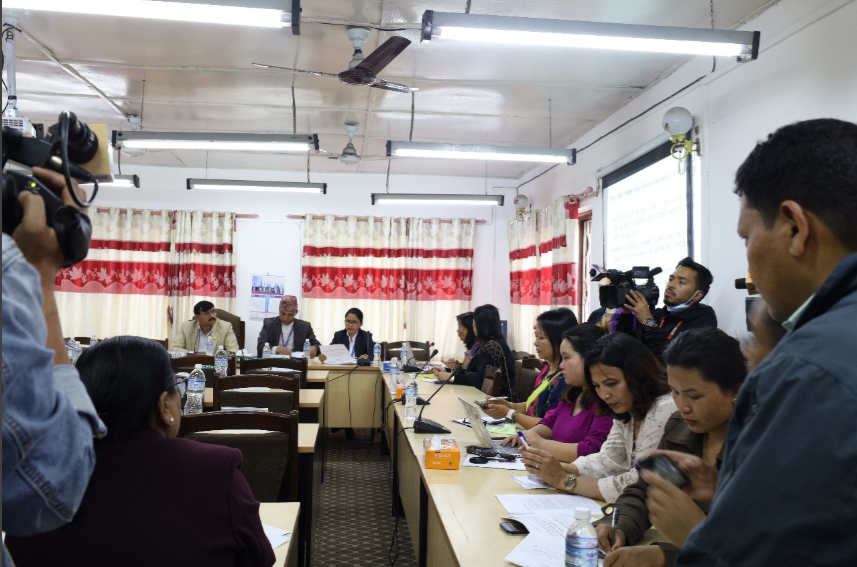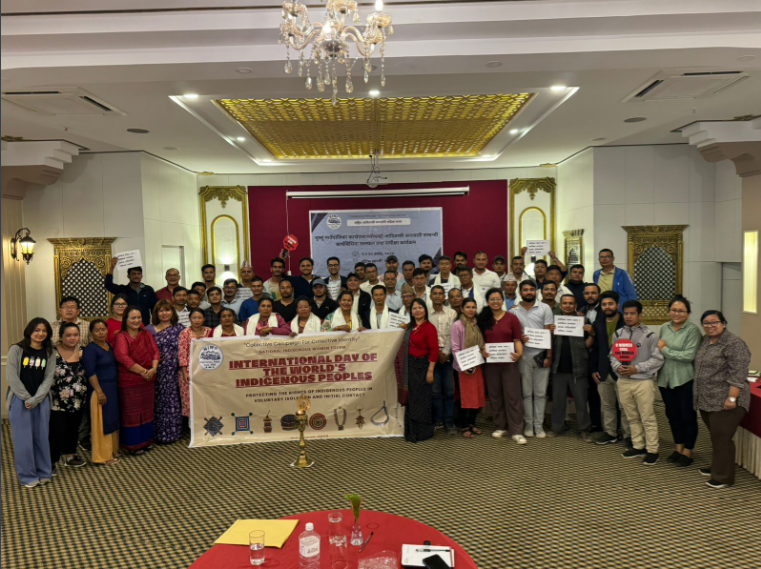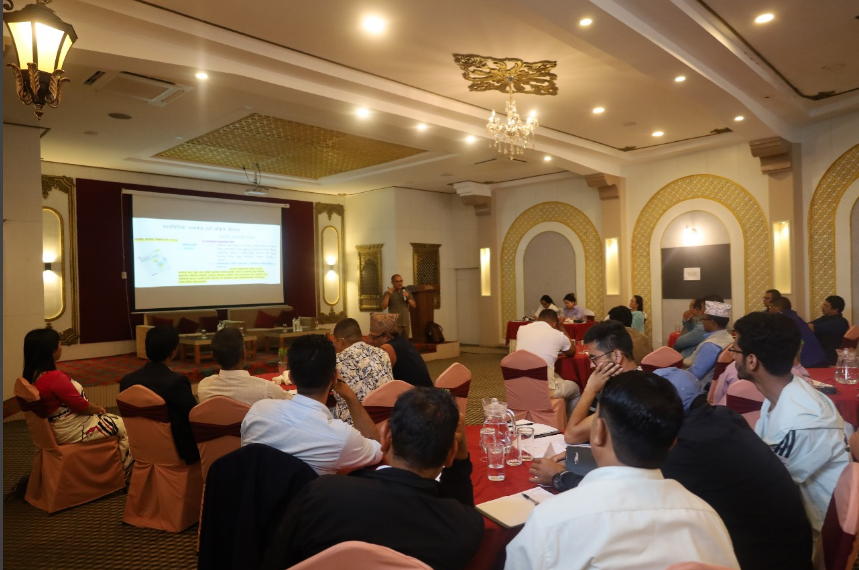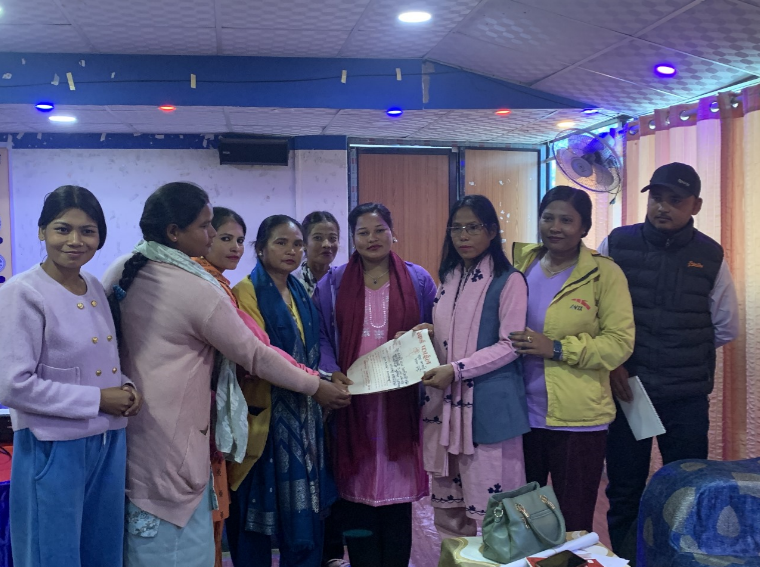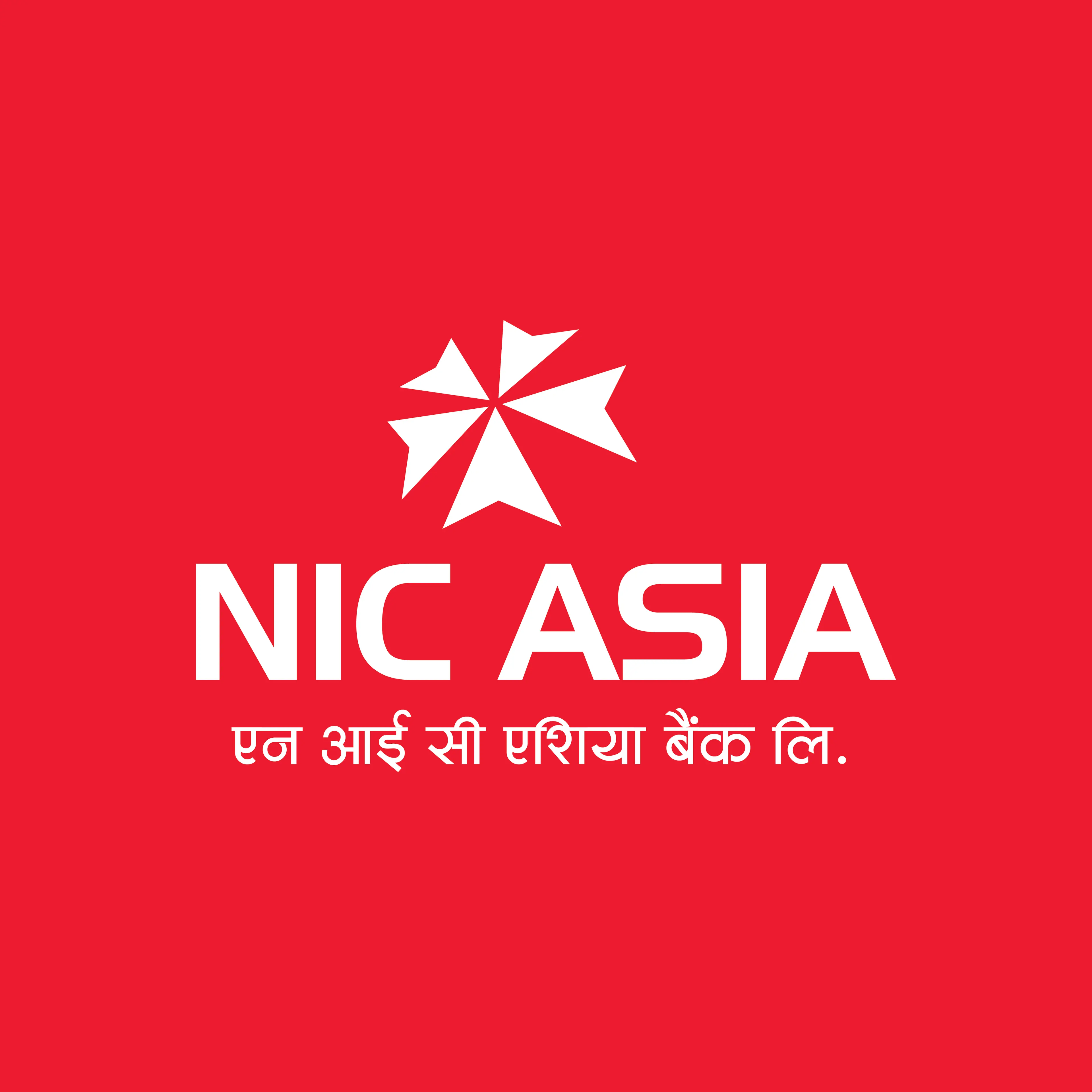
On 12th July 2023: The momentous occasion unfolded as the National Conference on “Indigenous Women’s Rights and Leadership at the Policy Level” commenced its journey. With great honor, we welcomed Federal and Provincial Level Representatives from all over Nepal.
A brief but meaningful Puja ceremony was initiated, led by Vice-Chair, Yasso Kanti Bhattachan, as participants collectively invoked blessings for the success of the conference.
 Resource persons, and experts in their respective fields, delivered thought-provoking speeches on the significant themes of the conference, including the Right to Self-Determination and Effective Tools to Safeguard the Rights of Indigenous Women.
Resource persons, and experts in their respective fields, delivered thought-provoking speeches on the significant themes of the conference, including the Right to Self-Determination and Effective Tools to Safeguard the Rights of Indigenous Women.
 Amidst the busy schedule, moments of respite emerged, allowing participants to engage in heartfelt conversations, and bond over refreshing tea, delectable snacks, and nourishing meals. As the sun descended, the day saw a colorful ending with “Solidarity Night.” It was an enchanting celebration, a jubilant tapestry of colors, music, and dance that embodied the unity and indomitable spirit of all Indigenous Communities.
Amidst the busy schedule, moments of respite emerged, allowing participants to engage in heartfelt conversations, and bond over refreshing tea, delectable snacks, and nourishing meals. As the sun descended, the day saw a colorful ending with “Solidarity Night.” It was an enchanting celebration, a jubilant tapestry of colors, music, and dance that embodied the unity and indomitable spirit of all Indigenous Communities.

National Indigenous Women Forum(NIWF), with the support of WFA, convened a discussion program with the members of the Women and Social Affairs Committee of the House of Representatives in the Ministry of Federal Affairs and General Administration, Singha Durbar, Kathmandu Nepal on the CEDAW General Recommendation-39.
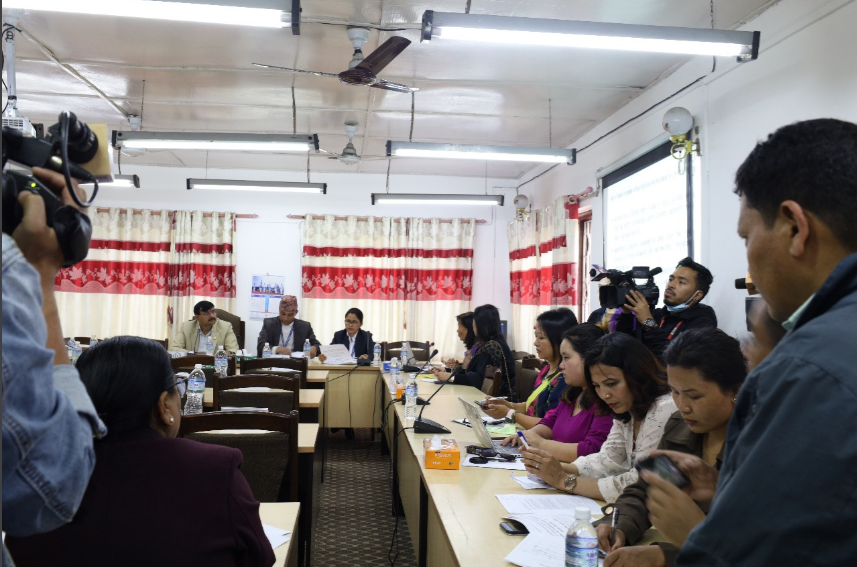 The event was facilitated by Mr. Indra Bahadur Poudel, secretary of Women and Social Affairs Committee of the House of Representatives where as Ms. Yasso Kanti Bhattachan Vice-Chairperson of NIWF-Forum presentated a paper on CEDAW GR-39.The focus of the discussion was on CEDAW General Recommendation No. 39, which addresses the rights and issues about Indigenous Women and Girls. NIWF's Chairperson Ms. Suni Lama also spoke on the challenges faced by Indigenous Peoples. She underscored the significance of CEDAW General Recommendation No. 39 in addressing the complex and multifaceted challenges faced by Indigenous Women and Girls in Nepal. By raising awareness of these issues and advocating for their rights within the framework of international human rights standards, NIWF is playing a pivotal role in advancing gender equality and social justice for Indigenous Communities in Nepal.
The event was facilitated by Mr. Indra Bahadur Poudel, secretary of Women and Social Affairs Committee of the House of Representatives where as Ms. Yasso Kanti Bhattachan Vice-Chairperson of NIWF-Forum presentated a paper on CEDAW GR-39.The focus of the discussion was on CEDAW General Recommendation No. 39, which addresses the rights and issues about Indigenous Women and Girls. NIWF's Chairperson Ms. Suni Lama also spoke on the challenges faced by Indigenous Peoples. She underscored the significance of CEDAW General Recommendation No. 39 in addressing the complex and multifaceted challenges faced by Indigenous Women and Girls in Nepal. By raising awareness of these issues and advocating for their rights within the framework of international human rights standards, NIWF is playing a pivotal role in advancing gender equality and social justice for Indigenous Communities in Nepal.
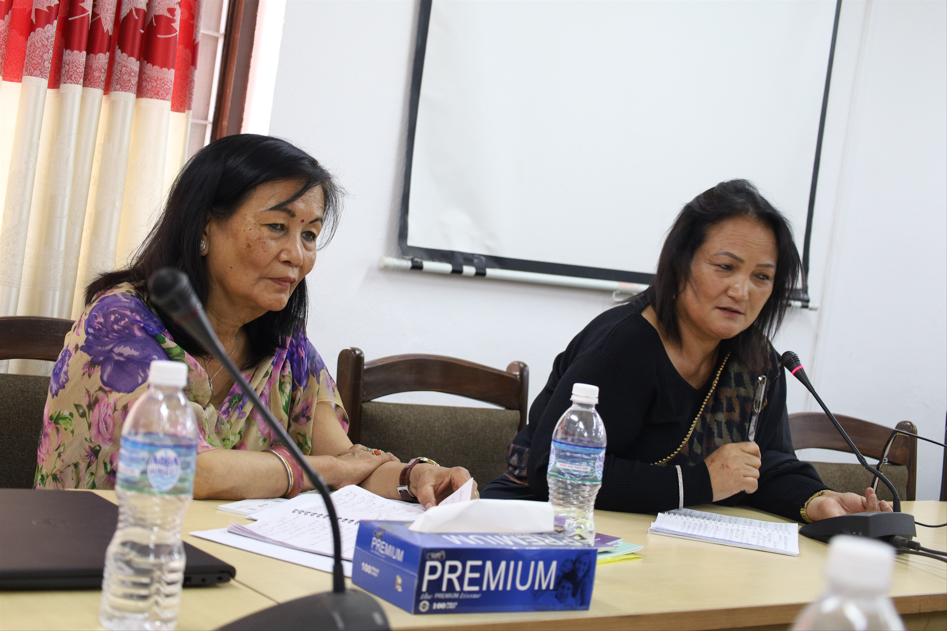
On June 22-23, 2024, the National Indigenous Women Forum (NIWF) held a training program on implementing CEDAW GR 39 in Nepal and addressing contemporary Indigenous Peoples' issues with members of the Women and Social Affairs Committee of the House of Representatives. Facilitated by NIWF's Vice Chairperson, Ms. Yasso Kanti Bhattachan, and Executive Director, Ms. Dwarika Thebe, the program opened with a welcome speech from NIWF's General Secretary, Ms. Manmaya Tamang. The chief guest, Hon. Kiran Kumar Shah, also gave a speech. The inauguration ceremony included candle lighting, led by Hon. Kiran Kumar Shah and NIWF's Chairperson, Ms. Suni Lama.
 Dr. Krishna Bhattachan presented on the major contemporary issues facing Indigenous Peoples, emphasizing the importance of Free, Prior, and Informed Consent (FPIC) and highlighting its frequent misuse. Sankhar Limbu discussed the implementation of CEDAW GR-39 within the Nepali legal system, underscoring its crucial role in safeguarding the rights of Indigenous Women and Girls. Himmat Singh Lekali stressed the importance of self-assessment, self-monitoring, and self-negotiation. Simrika Sharma spoke about Data and Information Literacy, the critical role of media in shaping our thoughts, and provided insights on enhancing public speaking skills through media. Arun Rai highlighted the significance of E-Libraries and explained how to effectively utilize them to obtain accurate information.
Dr. Krishna Bhattachan presented on the major contemporary issues facing Indigenous Peoples, emphasizing the importance of Free, Prior, and Informed Consent (FPIC) and highlighting its frequent misuse. Sankhar Limbu discussed the implementation of CEDAW GR-39 within the Nepali legal system, underscoring its crucial role in safeguarding the rights of Indigenous Women and Girls. Himmat Singh Lekali stressed the importance of self-assessment, self-monitoring, and self-negotiation. Simrika Sharma spoke about Data and Information Literacy, the critical role of media in shaping our thoughts, and provided insights on enhancing public speaking skills through media. Arun Rai highlighted the significance of E-Libraries and explained how to effectively utilize them to obtain accurate information.
Training committee members is essential to addressing these issues and fostering equality and social justice. Enhancing the capacities of committee members will strengthen their ability to oversee and evaluate laws and policies, ensuring accountability and better outcomes for Indigenous Women. With this aim NIWF organized this training program with the committee members. The program ended with NIWF's chairperson Ms. Suni Lama's speech thanking everyone for their participation and dedication towards making the program successful.
 Photo Description: Candle-lighting ceremony to inaugurate the program.
Photo Description: Candle-lighting ceremony to inaugurate the program.
On August 9, 2024, the National Indigenous Women Forum (NIWF) inaugurated a significant two-day training program aimed at fostering dialogue and reviewing the Bhumlu Indigenous Workplan Policy with members of the Bhumlu Rural Municipality. The event marked a crucial step in empowering local leaders and stakeholders to better understand and implement policies that support Indigenous communities, particularly focusing on women and girls. The training commenced with a warm welcome from Ms. Suni Lama, the Chairperson of NIWF. Ms. Lama expressed her gratitude to all the participants for their presence and their commitment to the cause of Indigenous rights. Ms. Saraswati Sherpa, Program Officer at NIWF, facilitated the training. With her experience and knowledge, she set the tone for the event, highlighting the objectives of the training and the critical role it plays in strengthening local governance and policy implementation concerning Indigenous rights.
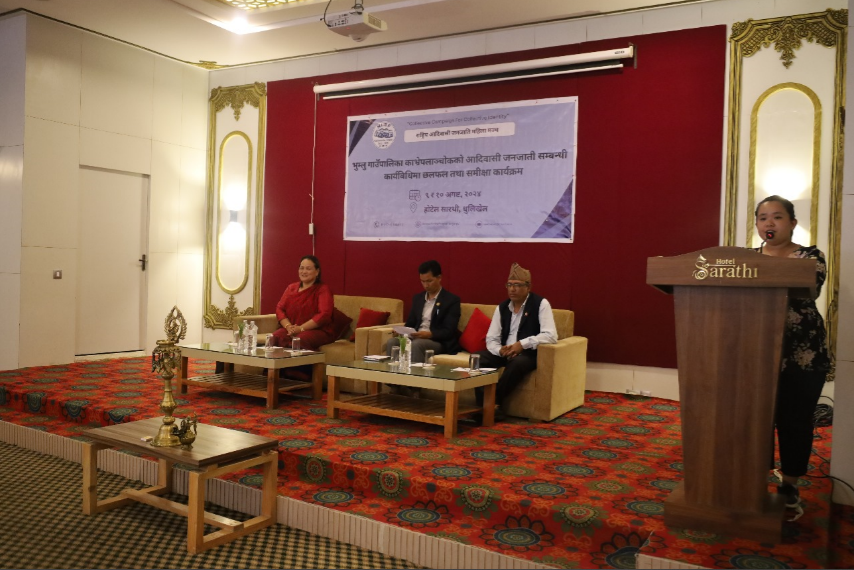
The highlight of the first day was an insightful and comprehensive presentation by Ms. Chanda Thapa, the resource person for the day. Ms. Thapa is renowned for her expertise in the rights of Indigenous women and girls, and her presentation focused on CEDAW General Recommendation 39, which is dedicated to the rights of Indigenous Women and Girls. Ms. Thapa provided a thorough overview of CEDAW General Recommendation 39, explaining its significance in addressing the unique challenges faced by Indigenous women. She emphasized that this recommendation is a powerful tool for advocating for the rights of Indigenous women at both national and local levels. Through her presentation, Ms. Thapa illustrated the key aspects of the recommendation, including the importance of preserving cultural identity, ensuring access to education and healthcare, and protecting Indigenous women from violence and discrimination. To make the recommendation more accessible and actionable, Ms. Thapa discussed various strategies for its effective implementation at the local level. She shared practical examples and case studies that demonstrated how communities could use CEDAW GR 39 to advocate for better protection and empowerment of Indigenous women and girls. The participants were encouraged to integrate these strategies into their local workplans and to become proactive advocates for the rights of Indigenous women in their communities.
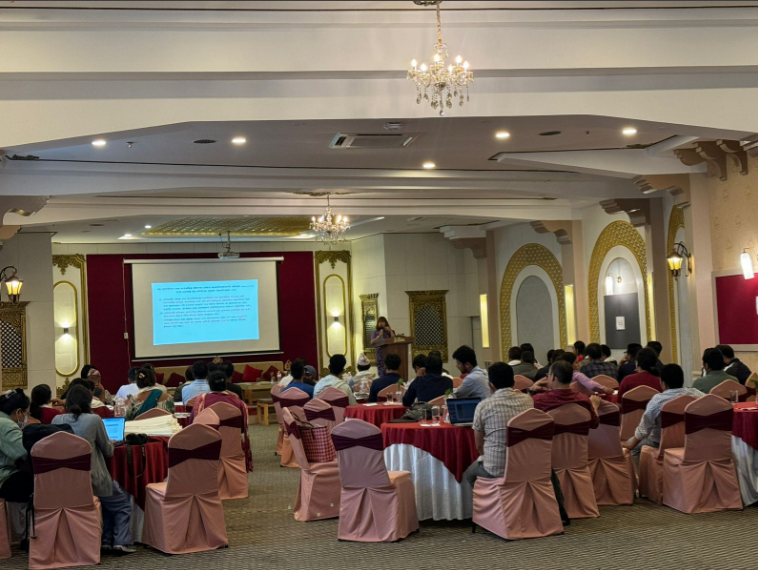
The first day of training also coincided with the International Day of the World’s Indigenous Peoples, adding a layer of significance to the event. To honor this important day, a solidarity dinner was organized, bringing together all the participants in a spirit of celebration and unity. The dinner provided an opportunity for everyone to reflect on the day's discussions, share their experiences, and build stronger bonds as they continued to work towards the common goal of advancing the rights of Indigenous peoples. The evening was filled with conversations, cultural exchanges, and a shared sense of purpose, making it a memorable conclusion to a day dedicated to learning, empowerment, and solidarity.
Following the successful first day, the National Indigenous Women Forum (NIWF) continued its impactful two-day training on August 10, 2024, focusing on the discussion and review of the Bhumlu Indigenous Workplan Policy with members of Bhumlu Rural Municipality. The second day of the training was facilitated by Ms. Dwarika Thebe, the Executive Director of NIWF, who brought her extensive experience and leadership to guide the sessions. 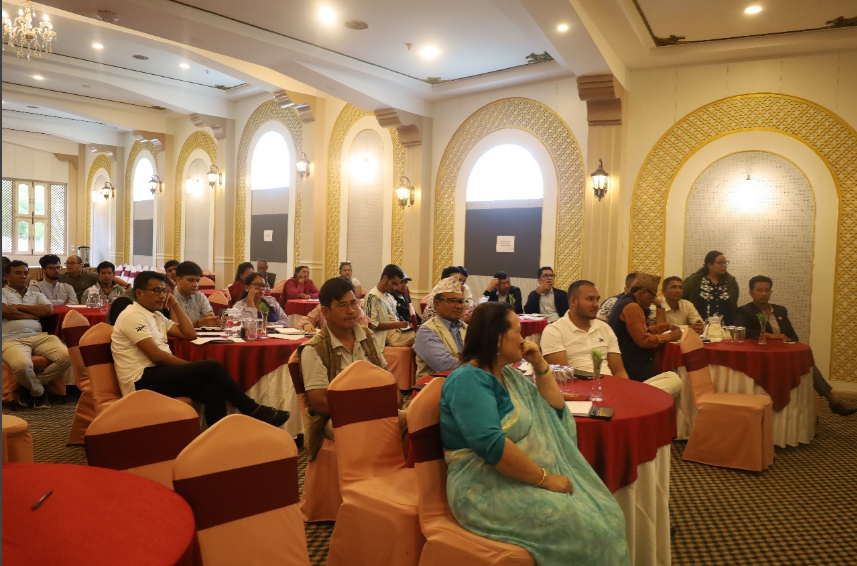
The day began with a compelling presentation by Mr. Kamal Sampang Rai, who addressed the critical topic of biodiversity, particularly in the context of climate change. Mr. Rai's presentation shed light on how Nepal's rich biodiversity is being increasingly threatened by the effects of climate change. He discussed the various ways in which rising temperatures, changing precipitation patterns, and habitat loss are impacting flora and fauna across the country. What made Mr. Rai's presentation particularly engaging was his exploration of the deep connection between Indigenous Peoples and biodiversity. He emphasized that Indigenous communities have a profound understanding of their natural environment, which is rooted in centuries of traditional knowledge and practices. This knowledge not only helps preserve biodiversity but also offers sustainable ways to protect and manage natural resources. Mr. Rai’s insights highlighted the invaluable role that Indigenous Peoples play in the global effort to combat climate change and preserve biodiversity.
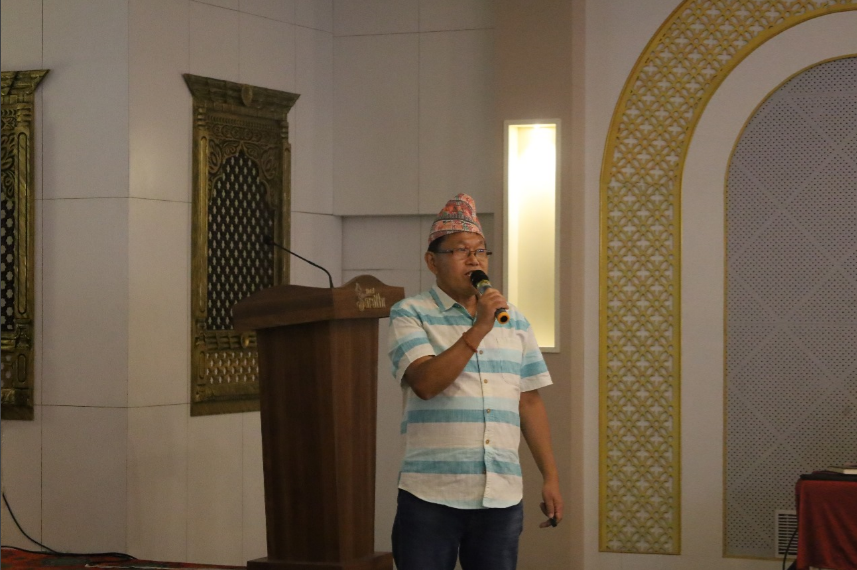
The discussion on climate change continued with an in-depth presentation by Mr. Bijay Kumar Singh, who focused on the specific impacts of climate change on Indigenous communities. Mr. Singh articulated how these communities are disproportionately affected by environmental changes, given their close relationship with the land and natural resources. He outlined several critical areas where climate change has disrupted traditional practices, including agriculture, fishing, and hunting. These disruptions have threatened food security, exacerbated poverty, and increased the vulnerability of Indigenous communities to natural disasters such as floods and landslides. Mr. Singh's presentation underscored the urgent need for targeted climate adaptation strategies that are culturally sensitive and community-driven, ensuring that Indigenous voices are central to policy-making processes.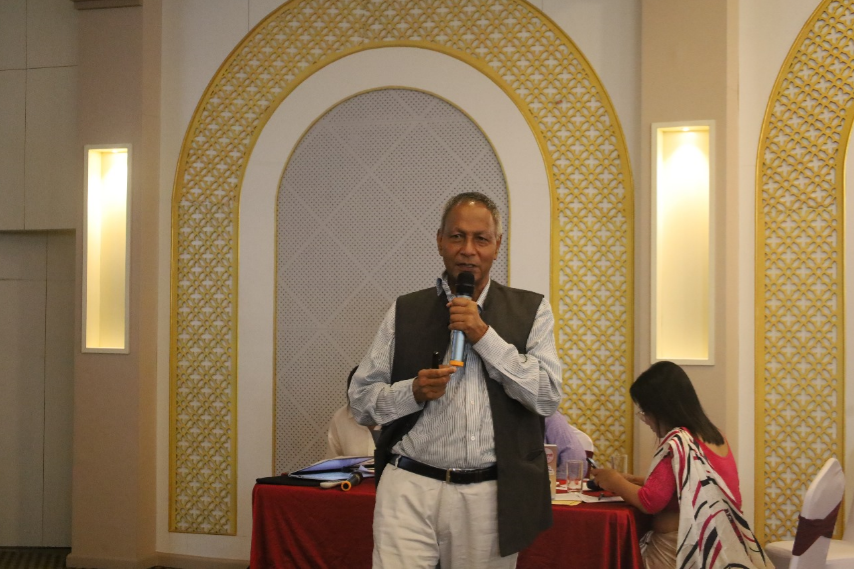
The final presentation of the day was delivered by Mr. Hom Yamphu, who provided an informative overview of key international frameworks that are vital for safeguarding the rights of Indigenous communities. Mr. Yamphu focused on the Universal Periodic Review (UPR), the Convention on Biological Diversity (CBD), the United Nations Declaration on the Rights of Indigenous Peoples (UNDRIP), and ILO Convention 169. He explained how these international frameworks could be effectively integrated into the governance procedures of Bhumlu Rural Municipality. Mr. Yamphu discussed the relevance of each framework in protecting the rights of Indigenous Peoples, emphasizing how these international standards offer a robust foundation for local policies and practices. He also provided practical guidance on how local authorities could implement these frameworks, ensuring that the rights of Indigenous communities are respected and upheld.
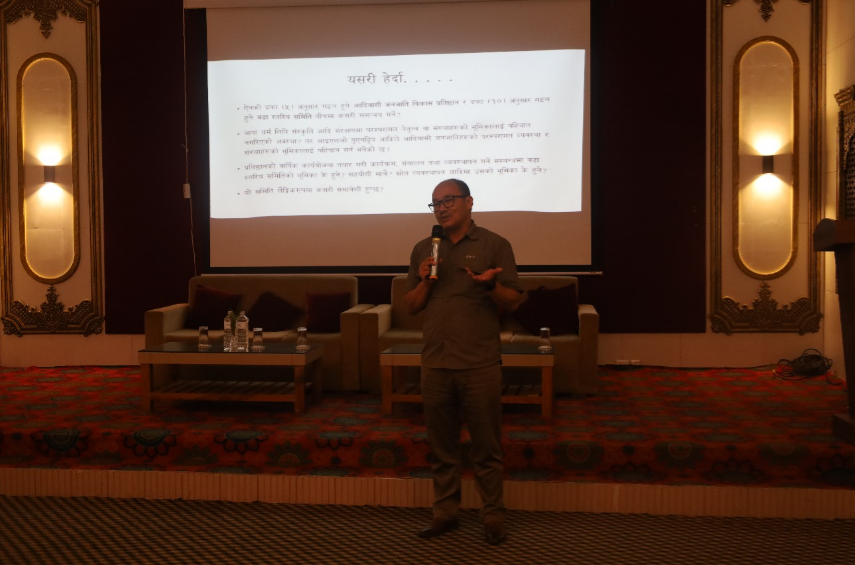
The training concluded with heartfelt speeches from two representatives of Bhumlu Rural Municipality. They expressed their sincere gratitude to NIWF for organizing such a comprehensive and enlightening event. The representatives shared how the training had significantly deepened their understanding of CEDAW General Recommendation 39, as well as other critical international frameworks like UPR, CBD, UNDRIP, and ILO Convention 169.
The second day of the training was a resounding success, building on the momentum of Day 1 and leaving participants with a deeper understanding of the challenges and opportunities in advancing the rights of Indigenous Peoples. The event not only facilitated knowledge sharing but also strengthened the resolve of local leaders to implement policies that honor and protect the heritage, rights, and well-being of Indigenous communities.
On November 30th and December 1st, 2024, National Indigenous Women Forum (NIWF), in collaboration with the Freed Kamlari Development Forum (FKDF), hosted a significant two-day program in Janaki Rural Municipality, Kailali district. The program, titled “The Role of Local Government in the Upliftment of Freed Kamlaris and Indigenous Women and Youth,” sought to bring together stakeholders to discuss pathways to empowerment, policy implementation, and sustainable development for these marginalized groups.
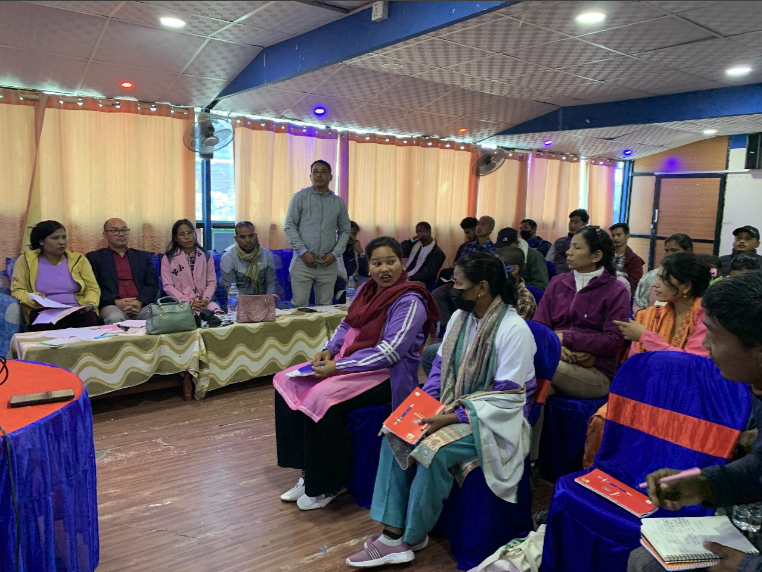
The event was graced by Janaki Rural Municipality Vice-Chairperson Lalmati Kathariya, who served as the chief guest. Ward No. 3 Chairperson Suresh Chaudhary joined as the special guest, alongside representatives from various organizations. A notable aspect of the program was the active participation of freed Kamlaris, whose firsthand experiences and insights enriched the discussions. Their presence highlighted the importance of inclusive dialogue in addressing the challenges faced by freed Kamlaris and Indigenous women and youth. A central feature of the program was an informative presentation by Mr. Hom Yamphu. His session focused on the existing policies and regulations that impact freed Kamlaris, shedding light on their rights, entitlements, and the gaps in policy implementation. The presentation laid the foundation for an engaging discussion session, where participants exchanged ideas, shared experiences, and proposed actionable solutions to address the systemic challenges faced by freed Kamlaris.
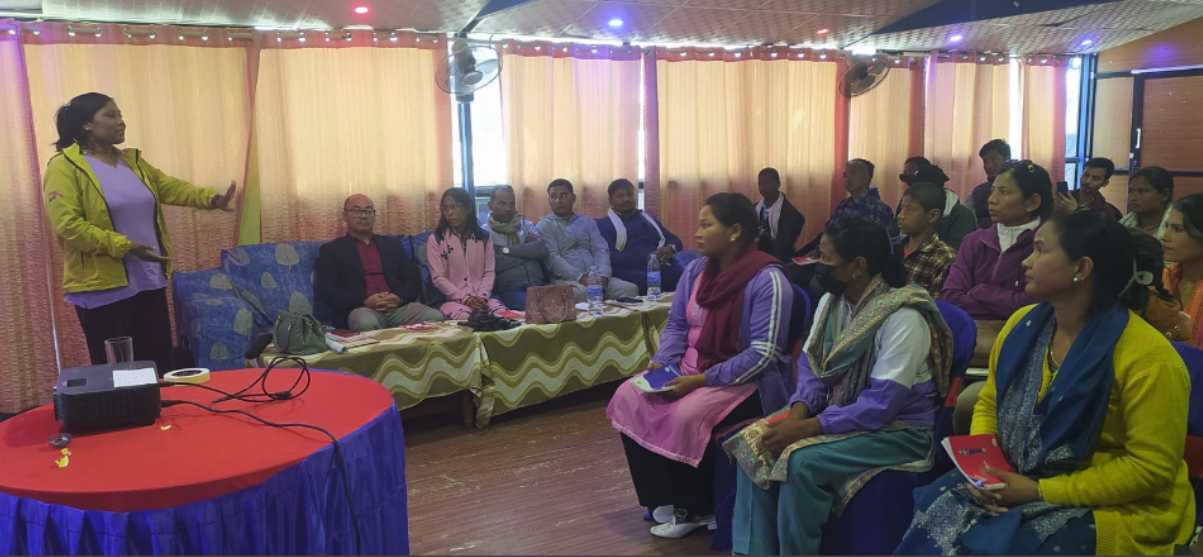
The program concluded with the presentation of a memorandum to Vice-Chairperson Lalmati Kathariya. The memorandum captured the demands and pressing concerns of freed Kamlaris, emphasizing the urgent need for enhanced support and interventions from local governments. Issues such as access to education, economic opportunities, healthcare, and social reintegration were highlighted as critical areas requiring immediate attention. This two-day initiative underscored the collective commitment of all stakeholders to foster meaningful change. By providing a platform for dialogue, the program not only amplified the voices of freed Kamlaris but also reaffirmed the role of local governments in promoting equity, empowerment, and sustainable development for marginalized communities. The discussions and outcomes of the event serve as a stepping stone toward ensuring that the rights and aspirations of freed Kamlaris and Indigenous women and youth are fully realized.
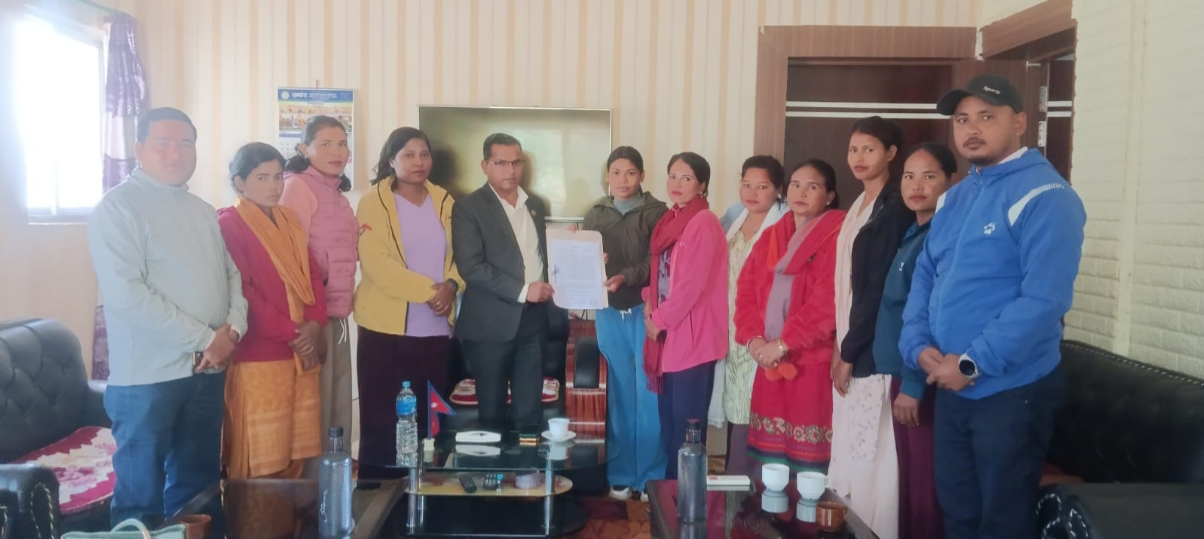
On 2nd December 2024, National Indigenous Women Forum (NIWF) in collaboration with the Freed Kamlari Development Forum (FKDF) submitted the Memorandum to Hon. Bir Bahadur Thapa Minister for Land Management, Agriculture, and Cooperatives. The Memorandum outlines the demands and pressing issues faced by freed Kamlaris.

